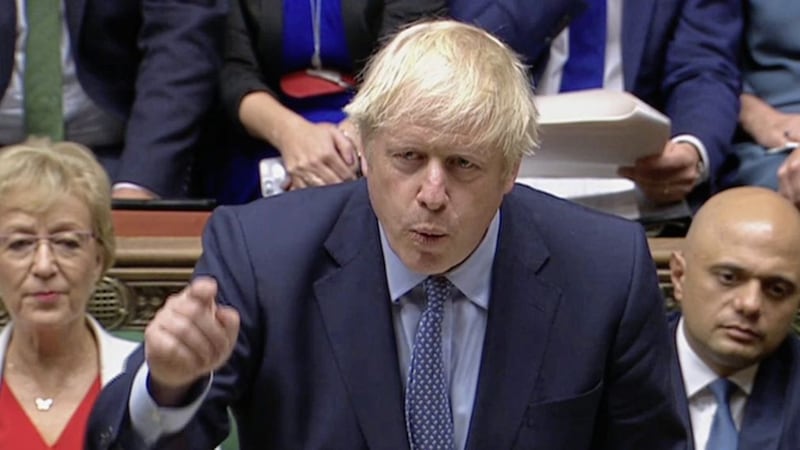‘I’m alienated’, says someone steeped in politics to the eyebrows, playing for a laugh. ‘I’m so alienated from them and their politics.’
The ‘them’ is the English, ‘their politics’ the woeful state of argument as relayed on air and in print from parliament and party conferences. Pointless to mock the alienated one by reminding him he has only ever identified with Ireland, as Irish. The point he makes is widely shared.
It would be wishful thinking to behave as if the woes across the water were solely the neighbour’s business. Looking away is not a sensible option, tempting though it may be and more adult and cool as it might appear. What emerges in the next month in the over-mighty centre of London is also going to dictate economic prospects here and the wider shape of lives to a distressing degree.
It is a most distressful country, England, and there is little point pretending to anything other than fascination with its travails. To say that is to be scolded by some as anti-English, anti-British, denounced for gloating. (Which is hooey, bunk; civil terms for dismissing the accusations of others. No need for heat or hatefulness, much less dangerous name-calling like ‘traitor, collaborator, quisling’. What’s gone wrong with people for whom English is their first language?)
As anyone who looks can see, England is enmeshed – Wales almost as much, Scotland less so though still entangled – in a struggle over taking itself out of the European Union, dragging with it the rest of the union that it dominates. Whatever leaving the EU with such recklessness will do in the long run to the island of Ireland, particularly this corner, the damage to the idea and reality of ‘Great Britain’ is now unmistakeable, undeniable.
The laidback sense of humour and irony, the tolerance the English have prided themselves on to a degree correctly, all of that is painfully strained in public life. (Although many born into the former Empire might sizzle with indignation at the very notion of English tolerance.) Scots and Welsh look on in disgust. In families throughout the country, political differences are putting relations under stress. This shocks people. It’s un-English, un-British. What opinion-formers have smugly called ‘Northern Ireland’s tribalism’ has fallen in on Great Britain.
If they like, we can tell them a thing or two; basic stuff, starting with the warning that it is not good to speak of your political opponents as though they are enemies of the state.
That never ends well. When an elected representative has already been killed by a mentally ill person shouting ‘Britain First’, playing to the notion that your opponents should be stopped by ‘any means necessary’ should surely be unthinkable. But then the current prime minister allowed himself to toss off the phrase that he would rather be ‘dead in a ditch’ than stay in the EU beyond the end of this month. This is someone who occasionally poses as a historian. In the very recent past, too many people here ended up dead in ditches for those words to be decently used in a politician’s pledge.
But then, this is also someone who told his country’s supreme court judges, while he shared a stage with Donald Trump, that they were ‘profoundly wrong’ in finding his proroguing of parliament unlawful. ‘Aren’t prisons full of people who believe that the court got it wrong?’ said one letter-writer to a British newspaper - in the circumstances at least as fitting a commentator as the prime minister.
Fomenting bitterness, preaching doom to a community that trusts nobody else? We know this playbook. The Reverend Ian Paisley cited the word of God to entrench segregation and demean others: ‘Come ye out and be ye separate’. It was a strategy that robbed unionism of vision and helped the IRA to justify violence. Boris Johnson is a light man, who may cement a heavy legacy.








